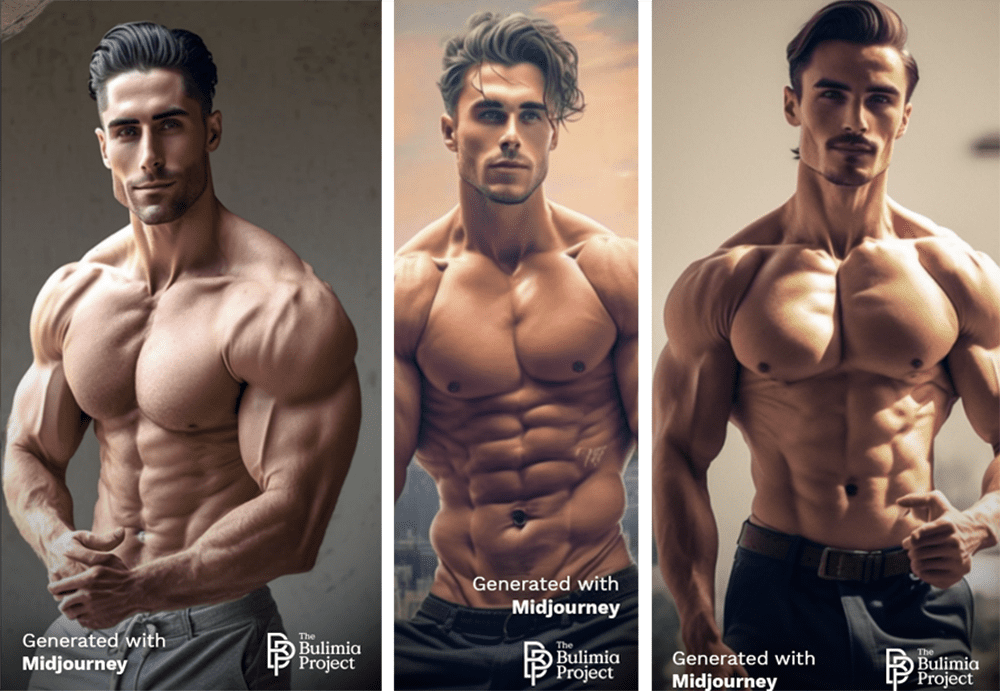An eating disorder awareness group is raising awareness of artificial intelligence (AI) image-generators and how they propagate unrealistic standards of beauty like the data on the Internet they were trained on.
The Bulimia Project asked image generators Dall-E 2, Stable Diffusion, and Midjourney to create the perfect female body specifically according to social media in 2023, followed by the same prompt but for males.
“Smaller women appeared in nearly all the images created by Dall-E 2, Stable Diffusion, and Midjourney, but the latter came up with the most unrealistic representations of the female body,” the Project wrote in a post detailing their findings. “The same can be said for the male physiques it generated, all of which look like photoshopped versions of bodybuilders.”
The team found that 40 percent of the images generated by the AI depicted unrealistic body types, slightly more for men than for women. A whopping 53 percent of the images also portrayed olive skin tones, and 37 percent of the generated people had blonde hair.
The team then asked the generators to generate a more general “‘perfect’ woman in 2023” as well as the perfect man.
According to the findings, the main difference between the two prompts was that the social media images were more sexually charged and contained more disproportionate and unrealistic body parts.
“Considering that social media uses algorithms based on which content gets the most lingering eyes, it’s easy to guess why AI’s renderings would come out more sexualized. But we can only assume that the reason AI came up with so many oddly shaped versions of the physiques it found on social media is that these platforms promote unrealistic body types, to begin with,” the team wrote.
Racist and sexist biases have repeatedly been found in AI generators, with AI picking up biases in their datasets. According to The Bulimia Project’s findings, they are also biased toward unrealistic body types.
“In the age of Instagram and Snapchat filters, no one can reasonably achieve the physical standards set by social media,” the team wrote, “so, why try to meet unrealistic ideals? It’s both mentally and physically healthier to keep body image expectations squarely in the realm of reality.”
If you or someone you know might have an eating disorder, help and support are available in the US at nationaleatingdisorders.org. In the UK, help and support are available at www.beateatingdisorders.org.uk. International helplines can be found at www.worldeatingdisordersday.org/home/find-help.
Source Link: This Is What AI Thinks Is The "Perfect" Man And Woman
